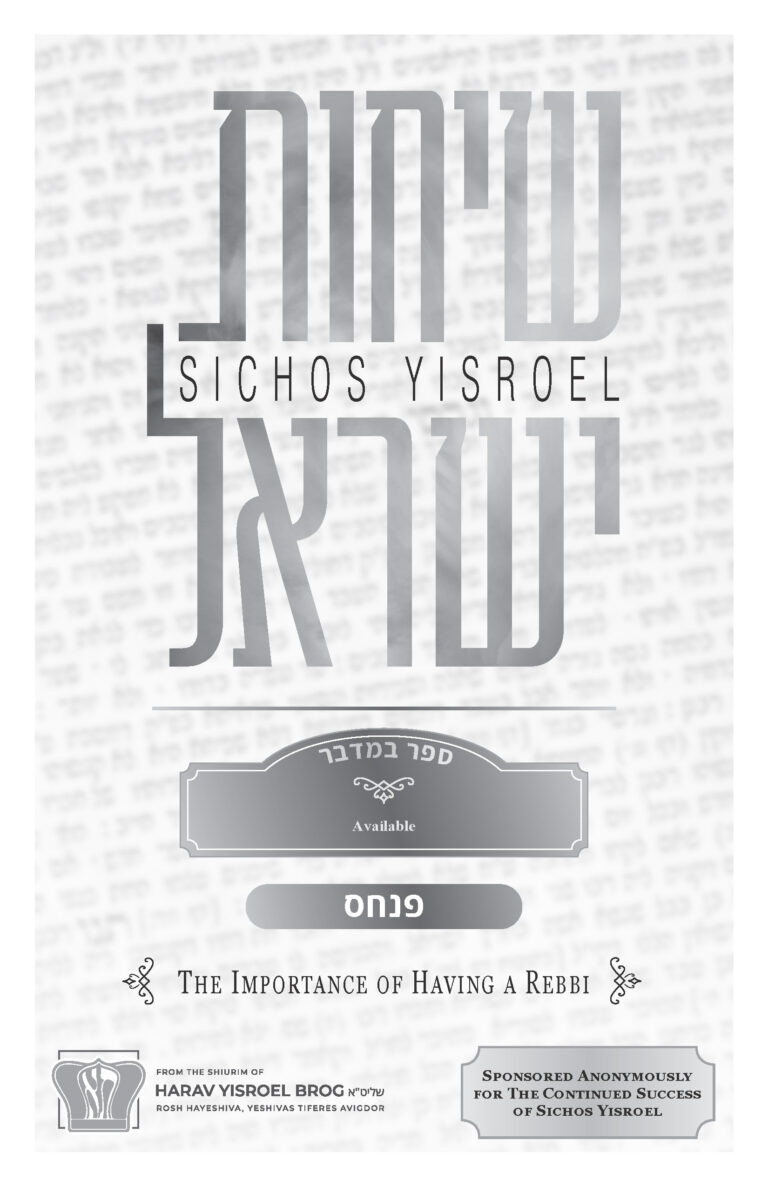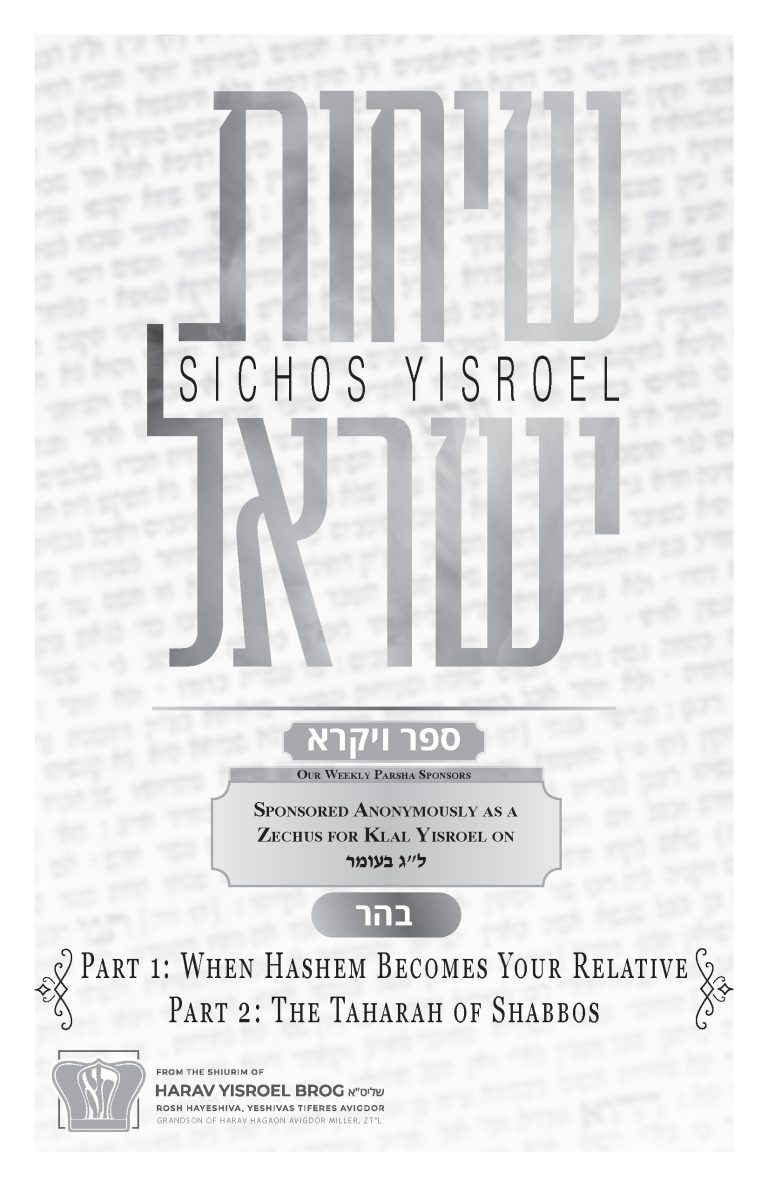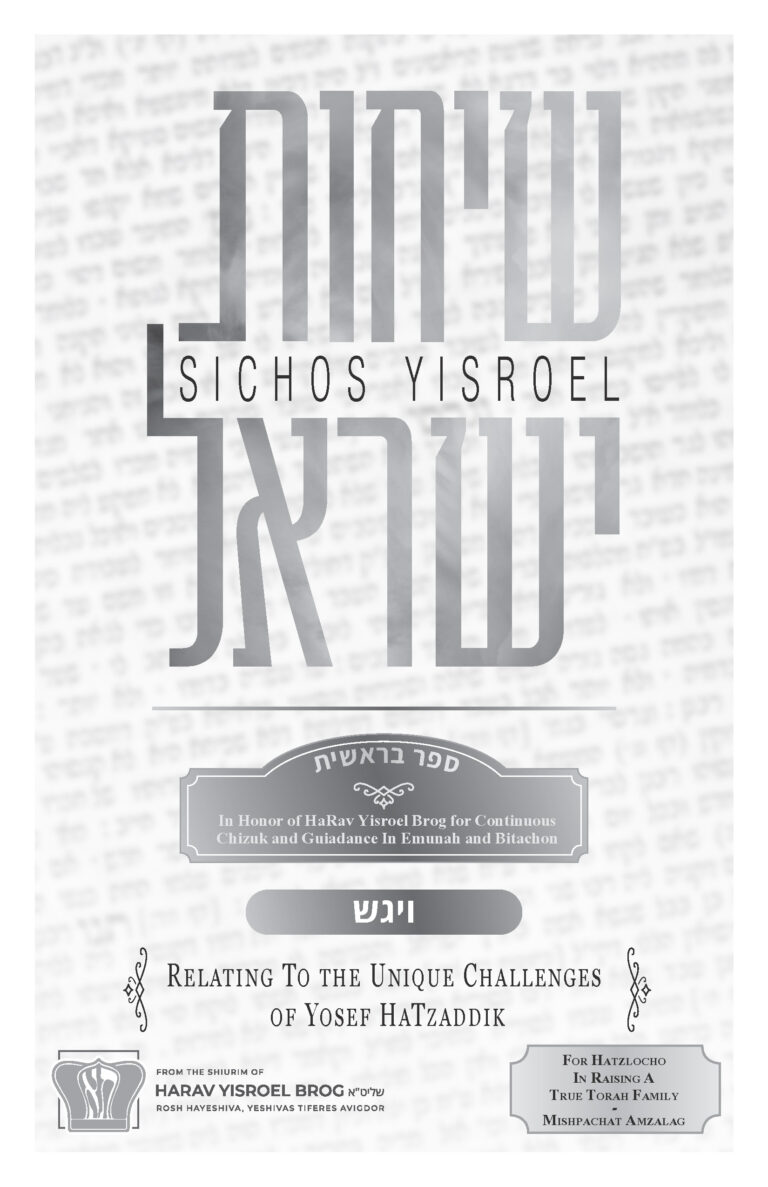
Similar Posts

Yisro 5783: Are You Aware That You Are Loved?
The first passuk in this week’s parshah begins by telling us the following: וישמע יתרו כהן מדין חתן משה, Yisro (who was the priest of Midian, and the father-in-law of Moshe), heard, את כל אשר עשה אלקים למשה ולישראל עמו, everything that Hashem did for Moshe and for His Nation Israel כי הוציא ה’ את ישראל ממצרים, that Hashem had taken Bnei Yisrael out of Mitztrayim (Shemos 18:1).

Pinchas 5783: The Importance of Having a Rebbi
What does, קַח לְךָ, take for yourself, mean? Rashi explains, קָחֶנּוּ בִּדְבָרִים , take him with words. Draw him in convince him and say to him, אַשְׁרֶךָ שֶׁזָּכִיתָ לְהַנְהִיג בָּנָיו שֶׁל מָקוֹם, fortunate are you that you are zocheh to be manhig the children of Hashem.

Balak 5782 – What The Focus of Chinuch Should Be
Our parshah depicts a well-known historical figure who represented ideals that weren’t nice. Bilam is considered the father of all bad middos and he’s the counterweight to the father of all good middos, Avraham Avinu. There’s a mishnah in Avos where our Tana’im make this contrast.

Behar 5784: When Hashem Becomes Your Relative
In the Torah it says, “If your brother becomes impoverished…” That means, the redeemer goes to the guy who bought the achuzah and gives him money and then he gets his relative’s field back for him. The passuk continues, “and a person who doesn’t have a redeemer and he comes into money.” Let’s say the original owner, who had to sell his field, comes into money somehow. He wins a lottery ticket…

Beshalach 5784: Are You Living in the World of Reality?
The Torah relates that after Klal Yisrael came out of Mitzrayim, they witnessed the greatest historical event and the greatest revelation up to that point in the history of the world. They saw myriads of makkos, hundreds of makkos. They saw Hashem taking apart Mitzrayim brick by brick. They saw Hashem playing with the Mitzri’im. They saw krias Yam Suf. They were able to point with their finger and say זה קלי ואנוהו, “this is My God, and I will glorify Him” (Shemos 15:2). They saw ananei hakavod, clouds of glory.

Vayigash 5783: Relating To the Unique Challenges of Yosef HaTzaddik
In this week’s parshah, there are a lot of powerful lessons to be learned. Yosef comes face to face with his brothers, and he reveals himself to them. Now, the passuk (Bereishis 45:4) says, אני יוסף אחיכם, I am Yosef your brother, אשר מכרתם אותי מצרימה, whom you sold to Mitzrayim. My Rebbi (HaRav Meir Halevi Soloveichik, zt”l) asked the following question: what was Yosef coming to add when he said אני יוסף אחיכם?